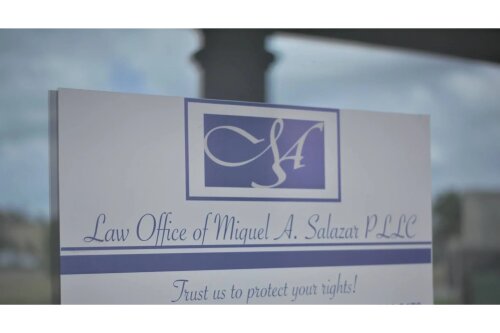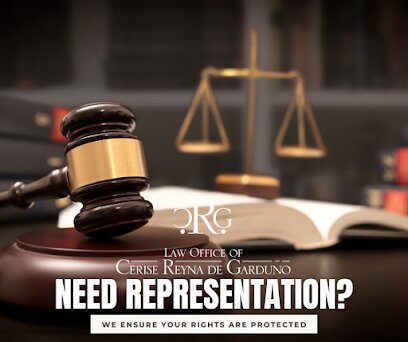Best Toxic Tort Lawyers in Brownsville
Share your needs with us, get contacted by law firms.
Free. Takes 2 min.
List of the best lawyers in Brownsville, United States
About Toxic Tort Law in Brownsville, United States:
Toxic tort law covers legal claims by people who have been harmed by exposure to hazardous substances. These claims typically address injuries from chemicals, contaminated water, air pollution, asbestos, lead, pesticides, industrial spills, mold, and other environmental or occupational contaminants. In Brownsville, Texas, toxic tort concerns can arise from industrial facilities, shipping and port operations, agricultural pesticide use, oil and gas activity, waste-disposal sites, and legacy contaminants from past industrial uses. Claims can be brought under state law theories such as negligence, strict liability, nuisance, trespass, product liability, and wrongful death, and sometimes under federal environmental statutes.
Why You May Need a Lawyer
Toxic tort cases involve complex science, technical evidence, and multiple responsible parties. Common situations where people in Brownsville may need a toxic tort lawyer include:
- Workplace exposure to hazardous substances where an employer or manufacturer may be responsible.
- Neighborhood or property contamination from nearby industry, a landfill, or a chemical spill.
- Exposure to contaminated drinking water or soil around residential areas.
- Long-term health conditions that may be linked to past exposure to asbestos, lead, pesticides, or industrial chemicals.
- Mass exposure incidents that affect multiple people and may lead to class actions or multi-district litigation.
A lawyer experienced in toxic torts can help identify responsible parties, preserve evidence, retain scientific and medical experts, navigate regulatory records, coordinate with government agencies, evaluate settlement offers, and litigate or negotiate for compensation for medical costs, lost wages, pain and suffering, future care, property damage, and in some cases punitive damages.
Local Laws Overview
In Brownsville, toxic tort claims interact with both state and federal law. Key legal and regulatory aspects to understand include:
- Texas personal injury law - Many toxic tort claims are pursued as personal injury actions under Texas civil law. Texas statutes of limitations commonly used in personal injury and wrongful death claims are often short, so timing is critical.
- Texas environmental statutes and agencies - The Texas Commission on Environmental Quality - TCEQ - is the primary state regulator for air, water, and waste issues. TCEQ maintains permits, incident reports, and enforcement actions that can be important evidence in a toxic tort case.
- Federal environmental laws - Federal laws such as the Clean Air Act, Clean Water Act, CERCLA - the Superfund law - and RCRA may apply to pollution events and cleanup programs. Federal regulatory activity can overlap with private lawsuits.
- Occupational safety rules - The Occupational Safety and Health Administration - OSHA - and state workplace safety standards govern many workplace exposures. OSHA records and investigations can be relevant to liability.
- Local public health roles - Cameron County and the City of Brownsville public health and environmental departments may respond to local contamination, conduct testing, and issue public notices. Their findings can be evidence in a claim.
- Government immunity and notice rules - Suits against government entities follow special procedures and shorter notice periods. Claims against state or certain local government entities may be subject to sovereign immunity limits and pre-suit notice requirements.
- Evidence sources - Important evidence in Brownsville cases often comes from TCEQ records, EPA records, public health reports, OSHA logs, company incident reports, environmental testing data, medical records, property records, and eyewitness testimony.
Frequently Asked Questions:
What exactly is a toxic tort?
A toxic tort is a civil lawsuit brought by a person who claims they were harmed by exposure to a hazardous substance. The legal claim seeks compensation for harms like illness, medical costs, lost income, property damage, and pain and suffering. The harmful exposure can come from products, industrial operations, contaminated water or soil, pesticides, or other toxic agents.
How do I know whether my illness was caused by chemical exposure?
Establishing causation usually requires medical evaluation and expert opinions. A doctor can diagnose a condition, but linking that condition to a specific exposure typically requires review of exposure history, testing, scientific literature, and expert testimony from occupational or environmental health specialists. A toxic tort lawyer can help arrange the necessary medical and scientific workup.
How long do I have to file a toxic tort lawsuit in Texas?
Time limits vary by claim type. Many personal injury and wrongful death claims in Texas have a two-year statute of limitations from the date the injury was discovered or reasonably should have been discovered. There are exceptions and special rules for government defendants, latent injuries, and federal claims. Because deadlines can bar a claim permanently, you should consult an attorney promptly.
Can I sue a company for pollution that affected my home or property?
Yes, you may have claims for nuisance, trespass, negligence, strict liability, or property damage if a company’s pollution contaminated your home, yard, or groundwater. Liability depends on proving that the company’s conduct caused the contamination and your damages. Environmental permits, monitoring data, and company records are often key evidence.
Will I need scientific and medical experts?
Almost always. Toxic tort claims rely on experts in toxicology, environmental science, industrial hygiene, epidemiology, and medicine to prove exposure, dose, dose-response relationships, and causation. Experts also assist with assessing future medical needs and damages.
How much does it cost to hire a toxic tort lawyer?
Many toxic tort attorneys work on a contingency fee basis, meaning they are paid a percentage of any recovery. There may also be case expenses for experts, testing, and court costs that the firm advances and seeks to recover from the defendant. Obtain a clear fee agreement up front and ask about how expenses are handled.
What types of compensation might I recover?
Potential damages include past and future medical expenses, lost wages and loss of earning capacity, pain and suffering, loss of consortium, property damage, and in certain cases exemplary or punitive damages. The amount recoverable depends on the facts, the strength of proof, applicable laws, and any statutory caps or limits that may apply.
Can multiple people with the same exposure bring a single lawsuit?
Yes. Where many people are affected by the same source of contamination, plaintiffs may pursue class actions or coordinated lawsuits. In federal court, related cases may be centralized into a multi-district litigation - MDL - for coordinated pretrial proceedings. Joining a larger case may provide access to shared resources and experts.
What role do government agencies play in toxic tort cases?
Government agencies investigate and regulate pollution, conduct testing, and enforce environmental and safety laws. Their reports, permits, enforcement actions, and inspection records can be important evidence. Agency action does not replace a private lawsuit, but it can support claims, trigger cleanup programs, or provide additional remedies.
Should I report a hazardous exposure to local or state agencies?
Yes. If you face an immediate health threat, seek medical care first. You should also report spills, releases, or unsafe conditions to local emergency responders, the county or city health department, and the TCEQ so that the event is documented and an official response can be initiated. Reporting helps create a public record that can be used later in a legal claim.
Additional Resources
Below are types of resources and agencies that can help with information, testing, reporting, or legal referrals:
- Texas Commission on Environmental Quality - state regulator for air, water, and waste enforcement and records.
- United States Environmental Protection Agency - federal oversight and Superfund programs for serious contamination.
- Texas Department of State Health Services - health guidance, data, and public health resources related to exposures.
- Cameron County and City of Brownsville public health and environmental departments - local response, testing, and records.
- Occupational Safety and Health Administration - workplace hazards, inspections, and employer obligations.
- National Institute for Occupational Safety and Health and Centers for Disease Control - technical guidance on exposures and health effects.
- State Bar of Texas and local bar associations - lawyer referral services to find an attorney experienced in toxic tort or environmental litigation.
- Local legal aid clinics and university law clinics - may provide guidance or referrals for qualifying individuals.
- Poison control and emergency medical services - for immediate health assistance after exposure.
Next Steps
If you believe you have been harmed by a toxic exposure in Brownsville, consider this practical checklist:
- Seek prompt medical attention and follow your doctor’s instructions. Obtain copies of all medical records and test results.
- Document the exposure. Record dates, times, locations, symptoms, names of witnesses, and any contact with responsible companies or agencies.
- Preserve evidence. Keep clothing, containers, photographs, bills, and other physical items that relate to the exposure. Do not discard or alter potential evidence.
- Report the incident to appropriate local and state agencies so there is an official record of the event.
- Request public records. Ask TCEQ, local health departments, and OSHA for inspection reports, permits, and incident reports that may relate to your case.
- Consult an experienced toxic tort or environmental attorney as soon as possible to evaluate your claim, explain relevant deadlines, and arrange necessary expert evaluations. Many firms offer free initial consultations and handle cases on a contingency fee basis.
- Keep a detailed file of all communications, medical bills, repair estimates, time missed from work, and other damages.
Acting quickly helps preserve rights, evidence, and legal options. An attorney can guide you through the investigative, administrative, and litigation steps needed to pursue compensation and relief.
Lawzana helps you find the best lawyers and law firms in Brownsville through a curated and pre-screened list of qualified legal professionals. Our platform offers rankings and detailed profiles of attorneys and law firms, allowing you to compare based on practice areas, including Toxic Tort, experience, and client feedback.
Each profile includes a description of the firm's areas of practice, client reviews, team members and partners, year of establishment, spoken languages, office locations, contact information, social media presence, and any published articles or resources. Most firms on our platform speak English and are experienced in both local and international legal matters.
Get a quote from top-rated law firms in Brownsville, United States — quickly, securely, and without unnecessary hassle.
Disclaimer:
The information provided on this page is for general informational purposes only and does not constitute legal advice. While we strive to ensure the accuracy and relevance of the content, legal information may change over time, and interpretations of the law can vary. You should always consult with a qualified legal professional for advice specific to your situation.
We disclaim all liability for actions taken or not taken based on the content of this page. If you believe any information is incorrect or outdated, please contact us, and we will review and update it where appropriate.











